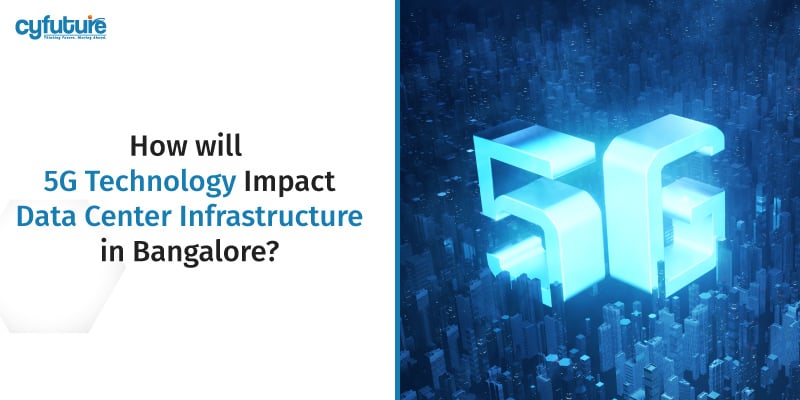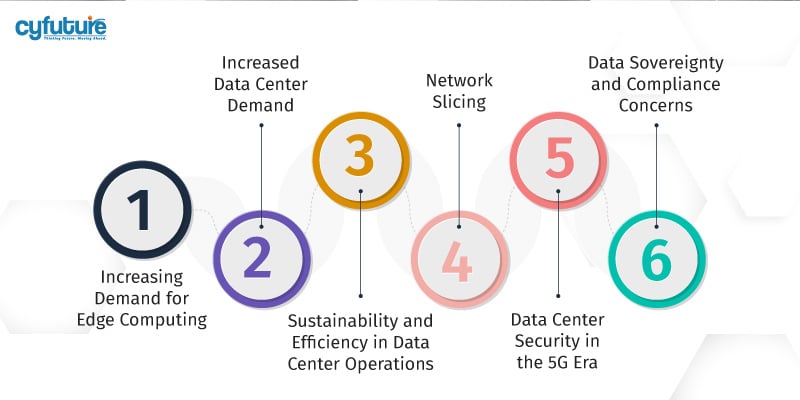-
Get Cloud GPU Server - Register Now!
Toggle navigation

As the world hurtles toward an epoch of unprecedented connectivity, this new 5G technology starts ascending as the revolutionary catalyst to change paradigms in industries, economies, and infrastructure.
In India, the dynamic nucleus that is Bangalore’s tech sphere is leading this digital transformation. Data centers in Bangalore are characterized by their insatiable need for data, relentless innovation, and accelerated digital transformation. It means they stand at the forefront of the rollout and smooth implementation of 5G technology. However, the question remains: how will 5G technology alter the infrastructure of Bangalore’s data centers?
The potential interaction between 5G and data centers promises to catalyze a significant evolution in Bangalore’s technological environment. This synergy speaks of a future where data throughput and processing speeds surpass those of today, forcing an overhaul in the architecture of data centers.
Ultra-low latency with tremendous bandwidth ushered by 5G will push Bangalore’s data centers to leapfrog advanced High-Density Storage Solutions, Edge Computing, and Hyper-Converged Infrastructure that their data centers today represent.
This transformation will not only enhance computational efficiency and scalability but also position Bangalore at the pinnacle of global technological innovation, ready to harness the boundless potential of 5G.
5G is the fifth generation of mobile networks intended to deliver unprecedented speeds and ultra-low latency levels along with increased connectivity. In theory, it will be capable of supporting 100 times faster speeds than 4G, thus making possible the adoption of real-time applications by such sectors as autonomous driving, AR, VR, and smart cities. This technological leap will indeed trigger an explosion of data traffic and thus place an enormous burden on existing infrastructure.
Bangalore, therefore, is one of those cities where the basics such as storage and processing of data will have to be reconsidered and upgraded with the advent of 5G. Data centers in the city have to grow and evolve in ways that would be unthinkable only a few years ago to serve these demands.

One of the biggest impacts of the evolution of data center infrastructure will come through increasing edge-computing requirements. 5G will substantially cut latency, which is important for applications that demand near-real-time processing—at least for autonomous vehicles, AR, or remote surgeries. However, for that ultra-low-latency experience to be achievable, data has to be processed a lot closer to the source of data generation.
Data centers that are on the periphery of networks—that is, closer to the end users—will be paramount in this environment. Bangalore edge data centers will then become more frequent as different firms seek to deliver services in a faster and more efficient manner. With the processing of data happening local to the source, business users can ensure that their users get better experience, latency, and performance for real-time applications.
With the deployment of 5G, it is expected that the number of connected devices will significantly increase, thus scaling the requirement for the operators of data centers in Bangalore. This demand for data speeds and analytics should be met in real-time, forcing the data center operators to upgrade their hardware, to high-capacity storage systems, GPUs, specialized processors designed for AI and machine learning tasks, and so on.
A high volume of data generated from connected devices would make a transition to innovative solutions that support high-performance computing environments even necessary for data centers. Such transitions will more sharply lead to a change in the level of capacity and agility of data centers toward handling large datasets at scale.
As the need for computing power grows with 5G, there is always a risk of a potential explosion of energy consumption in these data centers. Bangalore data center operators will need to make sustainability and operational efficiency on high priority to counter this. Concerns have already been high to reduce carbon footprints, and with 5G bringing more traffic to data centers, the demand to handle data center operations in an eco-friendly way will go up exponentially.
Data centers are likely to utilize renewable energy sources, superior cooling techniques, and the latest management technologies to make effective use of energy. With AI and machine learning becoming more prevalent in managing energy, data centers will be able to predict usage patterns, minimizing waste and ensuring lower operational costs. This convergence of sustainable concepts with technology will play a key role in transforming the data center service delivery within the city.
With 5G, network slicing is one of the most important advantages to be considered, especially when thinking of the variety of use cases emerging with IoT, healthcare, and manufacturing. Network slicing allows for the creation of virtual networks that are adapted to specific requirements, such as low latency, high throughput, or high reliability.
Data Centers in Bangalore will need to offer industry-specific services for different types of industries. Whether it is a virtual private network for an institute for financial, an ultra-low-latency network for autonomous vehicles, or a high-capacity network for content delivery, data centers have to adapt and offer bespoke solutions. This hyper-customization of data center services will lead to more specialized offerings, further solidifying the role of data centers in Bangalore as critical infrastructure providers for both small startups and large enterprises.
While 5G technology unlocks new applications and opportunities for businesses to connect, it does offer opportunities to increase cyber risks. Many connected devices and 5G network complexity are fresh security challenges that data centers will have to consider proactively.
Data centers would have to augment their security posture with advanced cybersecurity measures such as end-to-end encryption, real-time monitoring, and AI-driven threat detection in Bangalore. Data center services would need to mature in order to provide powerful security, capable of fending off the increased attack surface 5G introduces. That’s not only reinforcing physical security but also making sure virtual networks are fortified against increasingly sophisticated cyber attacks.
Data sovereignty and compliance issues will become much more complex with the advent of 5G and its ability to allow cross-border data flows. For Bangalore-based corporations, this will drive a greater need to interrogate the jurisdictions in which data are being stored and processed. Data center operators will have a serious need to invest more in compliance machinery to ensure the privacy and security of data under local regulations on data protection.
The data center ecosystem in Bangalore will have to align with international standards but comply with local laws, meaning the environment will be perfectly safe and secure for companies to continue their operations. Bangalore data center providers should ensure compliance with laws and regulations under and around the PDPB, ensuring proper data handling within defined legal boundaries.
Last but not least, the advent of 5G technology is going to see a huge change in the future of data centers in Bangalore. With the spiking demand for real-time data processing, edge computing is going to gain importance, and this will challenge data centers to evolve into platforms that can provide fast, efficient service. In addition, an increasing demand for high-capacity storage, sustainable energy use, and customized solutions is expected to propel the industry higher through innovation.
The importance of Data Centers in Bangalore will not be more relevant as businesses aim to exploit the new opportunities created by 5G. Data center services have to change rapidly to adapt to this hyper-connected, data-driven world of tomorrow. Looking forward, it is obvious that 5G does not only change the way we are and will be connected but, more importantly, redefines how data is stored, processed, and delivered. Agility, Efficiency, and Security will characterize the next generation of data centers, the pillars around which success in Bangalore’s digital economy for generations to come will be crafted.
Launch of 5G: It will lead to an explosion of IoT devices, smart cities, self-driving cars, and other technological innovations. Thereby, data centers in Bangalore would need to increase in capacity by holding high-performance computing environments along with powerful infrastructure to handle more complex and large datasets for effective performance.
As 5G applications, such as autonomous vehicles and augmented reality, demand ultra-low latency, edge computing will evolve into a fundamental technology to accelerate data processing and enhance the user experience by reducing latency. Data centers in Bangalore will increasingly deploy edge facilities closer to data generation points.
To manage the growing amount of data and optimize operations, artificial intelligence, and machine learning will be essential. In the era of 5G, data centers in Bangalore will employ these technologies for improved security, energy management, and predictive maintenance, increasing the effectiveness and resilience of their operations.
By facilitating real-time data analytics, supporting cutting-edge apps, and improving connection generally, 5G will open up new commercial options. By using data center services, Bangalore businesses may stay competitive in a world that prioritizes digitalization by gaining better performance, scalability, and the capacity for quick innovation.